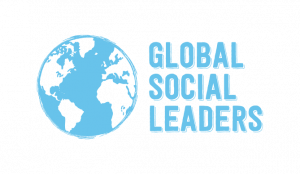Global Social Leaders is a unique school membership community that empowers young people aged 11-17 to create positive change and build a sense of purpose through community service. Here at GSL we and our Member schools have seen first hand the transformative results that building self belief, agency and sense of purpose through leading social action can have on young people, both in their academic and personal lives.
Now, researchers at Cambridge University have proven that wellbeing programmes that encourage teens to feel capable and purposeful could improve their academic results as well as their mental health.
The study, involving over 600 teenagers from seven English schools, examined two separate aspects of their wellbeing: life satisfaction and ‘eudaimonia’. While life satisfaction roughly equates to how happy a person is, eudaimonia refers to how well that person feels they are functioning. It incorporates feelings of competence, motivation and self-esteem.
Researchers found that students with high levels of eudaimonia consistently outperformed their peers in GCSE-level assessments, especially Maths. On average, those achieving top Maths grades had eudaimonic wellbeing levels 1.5 times higher than those with the lowest grades.
No such link was found between academic performance and life satisfaction. Despite this, child wellbeing policy in England tends to focus on life satisfaction. The Government has, for example, recently added ‘happiness’ to national curricula as part of its Relationships, Sex and Health Education (RSHE) guidance, emphasising teaching adolescents how to feel happy and resilient while managing negative emotions.
“Wellbeing education often focuses on teaching students about being happy and not being sad.” Clarke said. “That is over-simplistic and overlooks other vital qualities of wellbeing that are particularly salient during the formative period of adolescence.
Adolescents also need to develop self-awareness, confidence, and ideally a sense of meaning and purpose. Judging by our findings, an adolescent who is currently getting a 3 or 4 on their Maths GCSE could be helped to rise a couple of grades if schools emphasised these qualities for all students, rather than just promoting positivity and minimising negative emotions.”
Dr Tania Clarke, lead author, Faculty of Education, University of Cambridge.
The study showed a positive correlation between wellbeing and grades, with students that reported feelings of competence, motivation and self-esteem consistently outperforming their peers in assessments, especially in Maths.
“Wellbeing education needs to move beyond notions of ‘boosting’ happiness towards deeper engagement, helping adolescents to realise their unique talents and aspirations, and a sense of what happiness means for them, personally. This would not just improve wellbeing: it is also likely to mean better exam results, and perhaps fewer issues for students later on.”
Dr Ros McLellan, from the Faculty of Education, University of Cambridge
You can read more about the study here.
Global Social Leaders challenges young people to lead their own social action projects, working towards the United Nations Sustainable Development Goals. In this way, GSL’s project based learning model develops students’ motivation as they navigate, with our expert support, designing and executing a solution to a social issue they have identified. Whilst participating in the Global Goals Competition they work as a team towards deadlines and are required submit their plans for bespoke feedback and judging.
GSL fosters self-confidence as participants share the issues they are passionate about with their peers and see the real world impact of their team’s projects. Participants feelings of competence are boosted as they are given a platform to share their successes and celebrate the journey they have been on. They deepen their understanding of global issues and their own values by exploring the Global Goals and forge meaningful connections with like-minded young people around the world that also care about driving social change all of which contributes to a deep sense of wellbeing.
Students and teachers are supported throughout their GSL Journey with online training and connect events, CPD, resources to support with planning and running projects, and regular check-ins with the GSL Team.
“It was my first time getting to know people from around the world who are solving practical life problems of the world. It was really mind-opening & powerful to know that age or race does not matter when it comes to making a difference”.
Aisha, student, British International School, Ukraine.
Read Aisha’s full reflection here.
GSL Membership offers a holistic framework for schools working closely and collaboratively with educators to help young people to become global citizens who are connected to an international community of values driven committed to making a positive impact on the world. Whilst enhanced academic performance has not historically been a key measurable of the impact of our programmes on young people, it is long overdue to see this shift in thinking around the intrinsic link between wellbeing and grades taking place.



